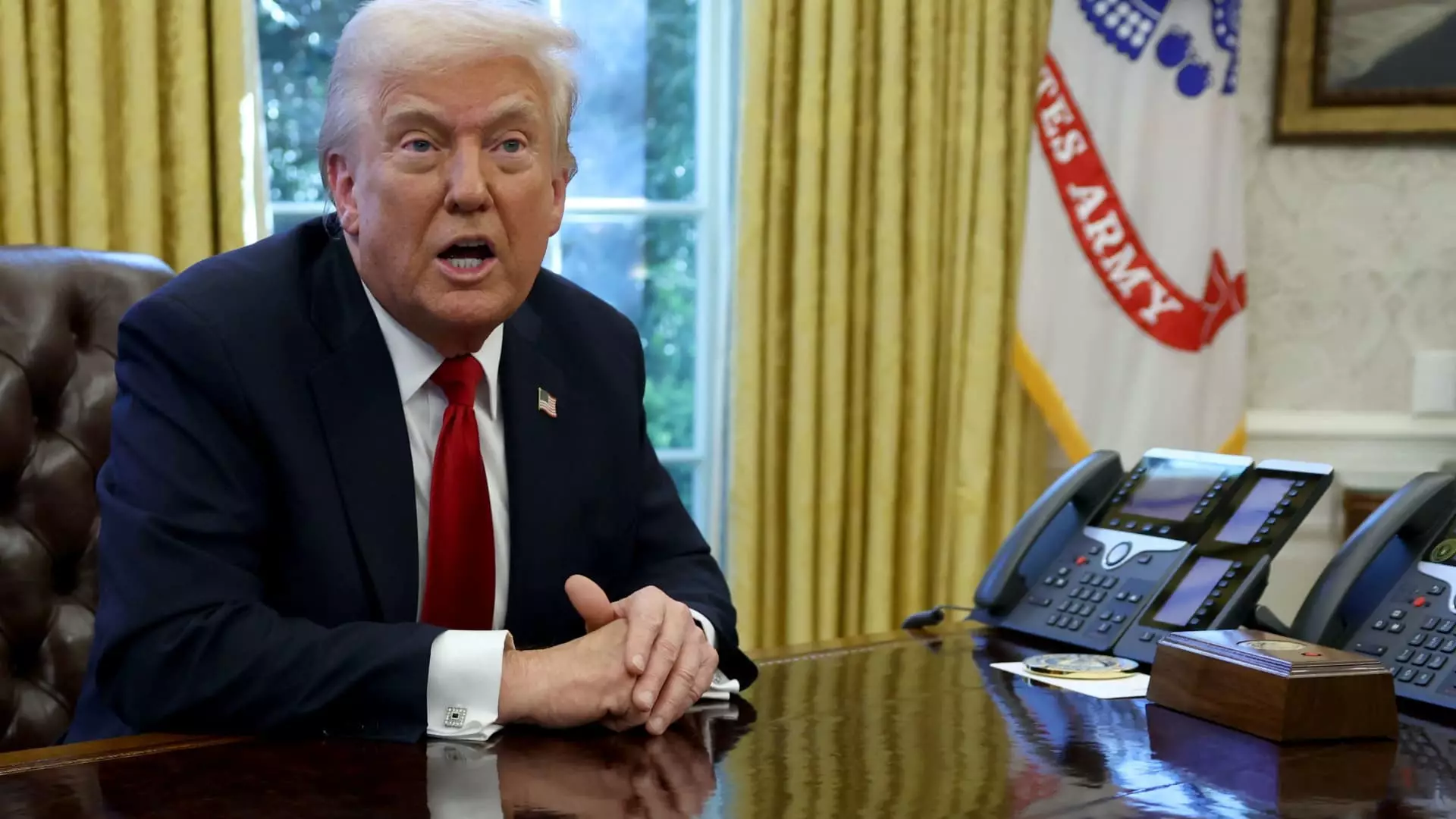The announcement made by President Donald Trump regarding a 25% tariff on all vehicles not manufactured in the United States has ignited a complex conversation surrounding American manufacturing, innovation, and international trade. In an era where the automotive industry is increasingly leaning towards electric vehicles (EVs), the implications of such tariffs are not merely economic—they extend into the realm of technological progress and market dynamics. The inclusion of high-profile figures like Tesla’s CEO Elon Musk in this economic narrative highlights the intersection of innovation and regulation, a space where the moving parts can occasionally clash.
This recent policy move reflects a broader agenda that aims to bolster domestic manufacturing in the face of global supply chains that often rely on international partnerships. Such tariffs are ostensibly designed to protect American jobs and stimulate economic growth within the country, but they also evoke questions about the sustainability of such an approach in today’s interconnected markets. The decision to impose tariffs could lead to retaliatory measures from other countries, straining relationships that are vital for supply chains—especially in industries like automotive manufacturing that require intricate exchanges of parts and technologies.
Musk’s Role as an Advisor and Innovator
Elon Musk, as a senior advisor to Trump and a significant figure in the EV space, represents the dual role of business leader and political advisor. His contributions to Trump’s campaign, including a substantial financial backing, suggest a close relationship that ostensibly should allow for open dialogue about industry challenges. Notably, Musk’s silence regarding the new tariffs—described by Trump as possibly due to a “conflict of interest”—raises eyebrows. If one of the foremost CEOs of the automotive world hesitates to comment on a policy that could drastically affect his business, that speaks volumes about the delicate balance of political allegiance and corporate responsibility.
The tariffs could theoretically benefit manufacturers with operations in the U.S. as Trump posits, potentially giving Tesla an edge over foreign competitors. However, it’s essential to note that while Tesla has manufacturing facilities in both Texas and California, it also relies on a global supply chain for many components crucial to EV production. The challenge lies in reconciling the intent behind the tariffs with the practical realities of a diverse supplier network that spans different continents.
Impact on Production and Supply Chains
Tesla’s statement to the U.S. Trade Representative highlights a significant concern: while the company is keen on localizing its supply chain, it faces substantial hurdles in sourcing specific components domestically. This raises a critical issue about the feasibility of achieving a self-sufficient manufacturing environment within the U.S. The tariff situation may seem beneficial for domestic companies on the surface, but the underlying implications could mean increased costs and production delays, ultimately hampering innovation and market responsiveness.
Amid rising competition from new entrants and established players alike, Tesla finds itself in a precarious position. The automotive landscape is rapidly changing, with firms like BYD from China and traditional brands like Ford and General Motors stepping up their EV game. If Tesla’s production costs rise due to tariffs, it could hinder its ability to compete on price with these challengers, who are traditionally not encumbered by similar domestic economic policies.
Additionally, the adverse effects on stock prices for domestic automakers following Trump’s announcement indicate investor concerns regarding the long-term ramifications of such tariffs on market competitiveness. While tariffs may aim to protect jobs, they could inadvertently stifle the very innovation that drives the automotive sector forward.
The Broader Impacts on the Electric Vehicle Industry
As the electric vehicle market continues to expand, the interplay between regulation and innovation will become even more crucial. The introduction of tariffs exists at a pivotal moment when consumer preferences are shifting towards sustainable practices and cleaner technologies. While tariffs may offer short-term benefits to some manufacturing sectors, they could curtail the long-term growth potential of the entire EV ecosystem.
Potentially, rising costs could deter consumers from investing in electric vehicles, which counters the broader ambition of promoting green technology. The disconnect between regulatory intentions and market realities often exacerbates tensions in industries undergoing transition, revealing that protecting domestic interests is easier said than done.
In examining Trump’s tariff imposition and its ramifications, we encounter a complex tapestry of economics, politics, and emerging technologies that will shape the future landscape of the automotive industry. The confluence of these factors presents both challenges and opportunities, urging stakeholders to navigate this intricate matrix with agility and foresight.

